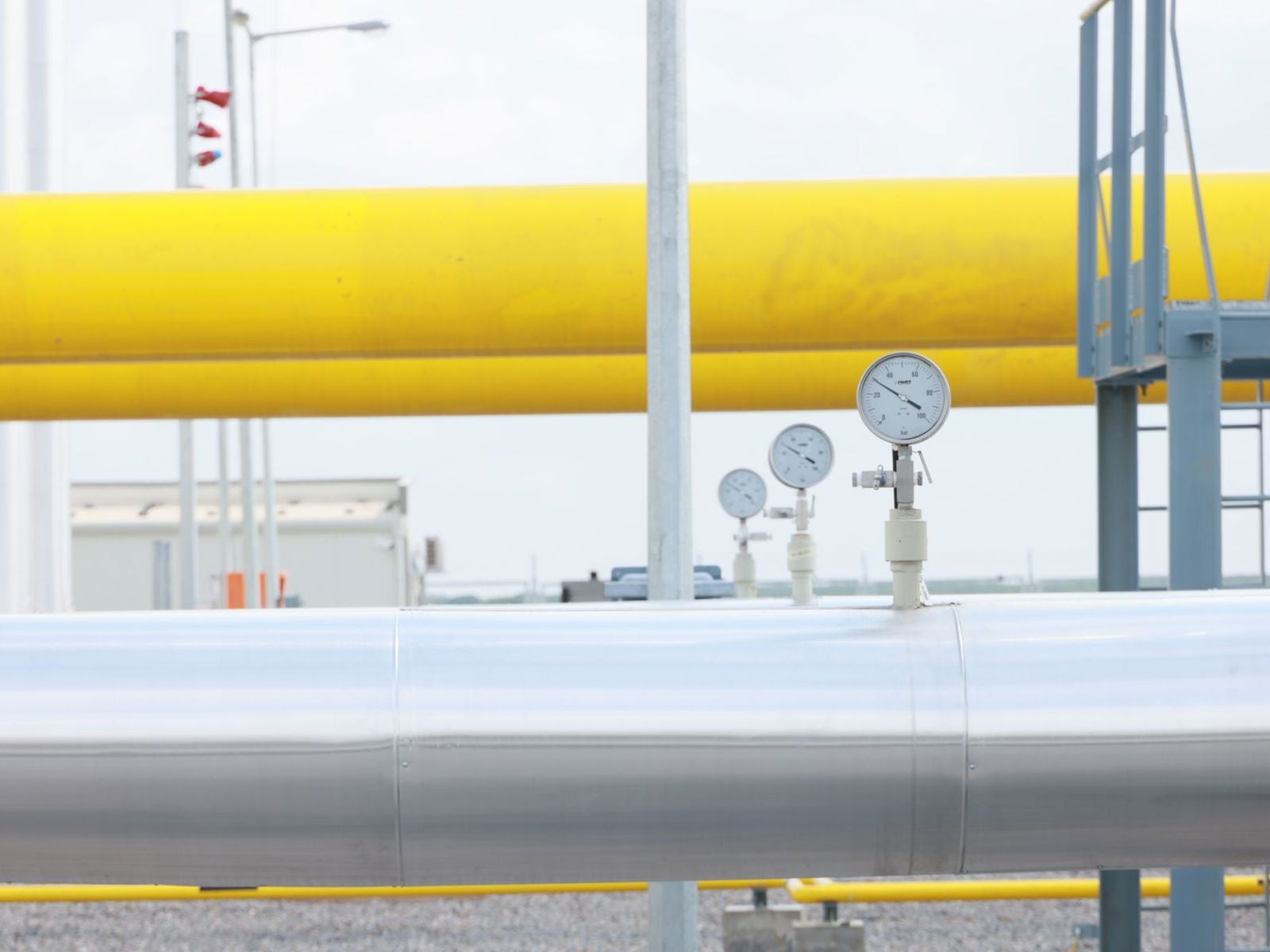
Greece and Bulgaria have commissioned the long-delayed gas interconnector pipeline between the two countries to help reduce their dependence on Russian gas and boost energy security.
The 182km-long Gas Interconnector Greece-Bulgaria (IGB) pipeline is expected to contribute to Europe’s efforts to reduce its dependence on Russian gas amid Moscow’s military incursion on Ukraine.
It is designed to connect Greece’s national gas transmission system in the area of Komotini with the Bulgarian national gas transmission system in the Stara Zagora region.
Intended to carry gas from the Trans-Adriatic Pipeline and Greece to Bulgaria and neighbouring countries, the Trans-European Networks for Energy-backed project has an initial capacity of three billion cubic metres per year in the South-North direction.
The Commissioner of Energy Kadri Simson said: “The IGB can provide much-needed alternatives and flexibility for Bulgaria and the whole region. This new route will help to strengthen security of supply to the region, including the Western Balkans, Ukraine, and Moldova.”
Earlier this year, Russia’s state-controlled Gazprom cut off gas supplies to Bulgaria due to its refusal to pay for gas in roubles.
How well do you really know your competitors?
Access the most comprehensive Company Profiles on the market, powered by GlobalData. Save hours of research. Gain competitive edge.

Thank you!
Your download email will arrive shortly
Not ready to buy yet? Download a free sample
We are confident about the unique quality of our Company Profiles. However, we want you to make the most beneficial decision for your business, so we offer a free sample that you can download by submitting the below form
By GlobalDataEuropean Commission president Ursula von der Leyen said: “This pipeline is a game changer. It’s a game changer for Bulgaria and for Europe’s energy security. And it means freedom. It means freedom from dependency on Russian gas.”
The pipeline is controlled by a joint venture between Greek gas utility DEPA, Bulgarian state energy company BEH, and Italy’s Edison.
Amid the Russia-Ukraine conflict, the Czech Republic and Poland are seeking funding from the European Commission for a new gas pipeline, reported Reuters, citing the Czech Industry Ministry.
The proposed Stork II interconnection would connect the Czech Republic to Poland’s network of pipelines and its LNG terminals.
In a separate announcement, Gazprom suspended gas deliveries to Italy’s Eni via Austria, further escalating Europe’s energy crisis.
Gazprom was cited by Reuters as saying in a statement on Telegram that the move was the result of ‘regulatory changes in Austria’.
Last week, tensions grew following gas leaks into the Baltic Sea from the Nord Stream 1 and 2 pipelines that connect Russia and Germany.
Raising concerns over the pipelines’ damage, the Nordic Ministers of Defence said in a statement: “Finland, Iceland, and Norway stand ready to support Denmark and Sweden by any means possible in the investigation of the incident. We are in close contact with each other regarding the incident and the overall security situation in the Baltic Sea region and beyond.”



